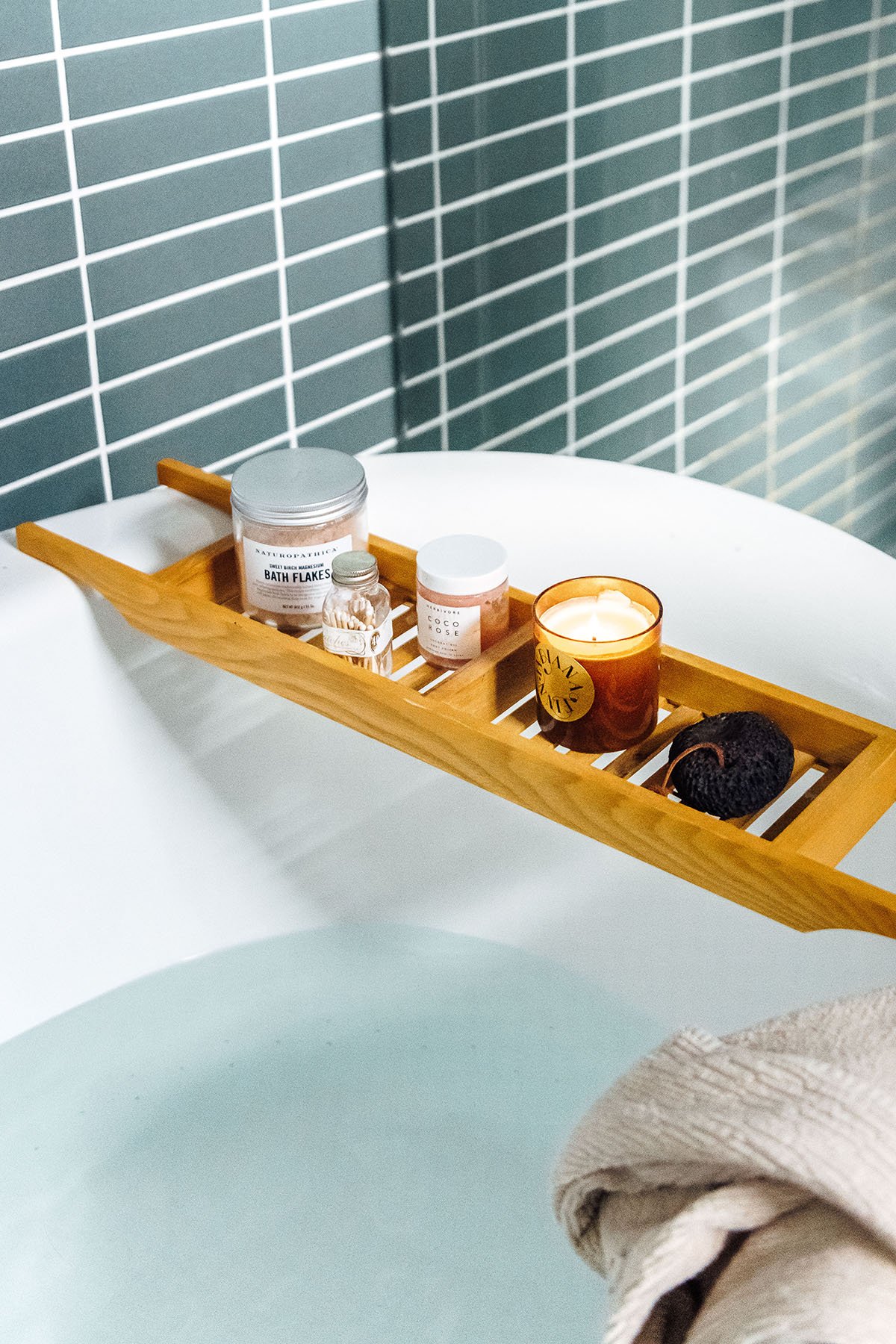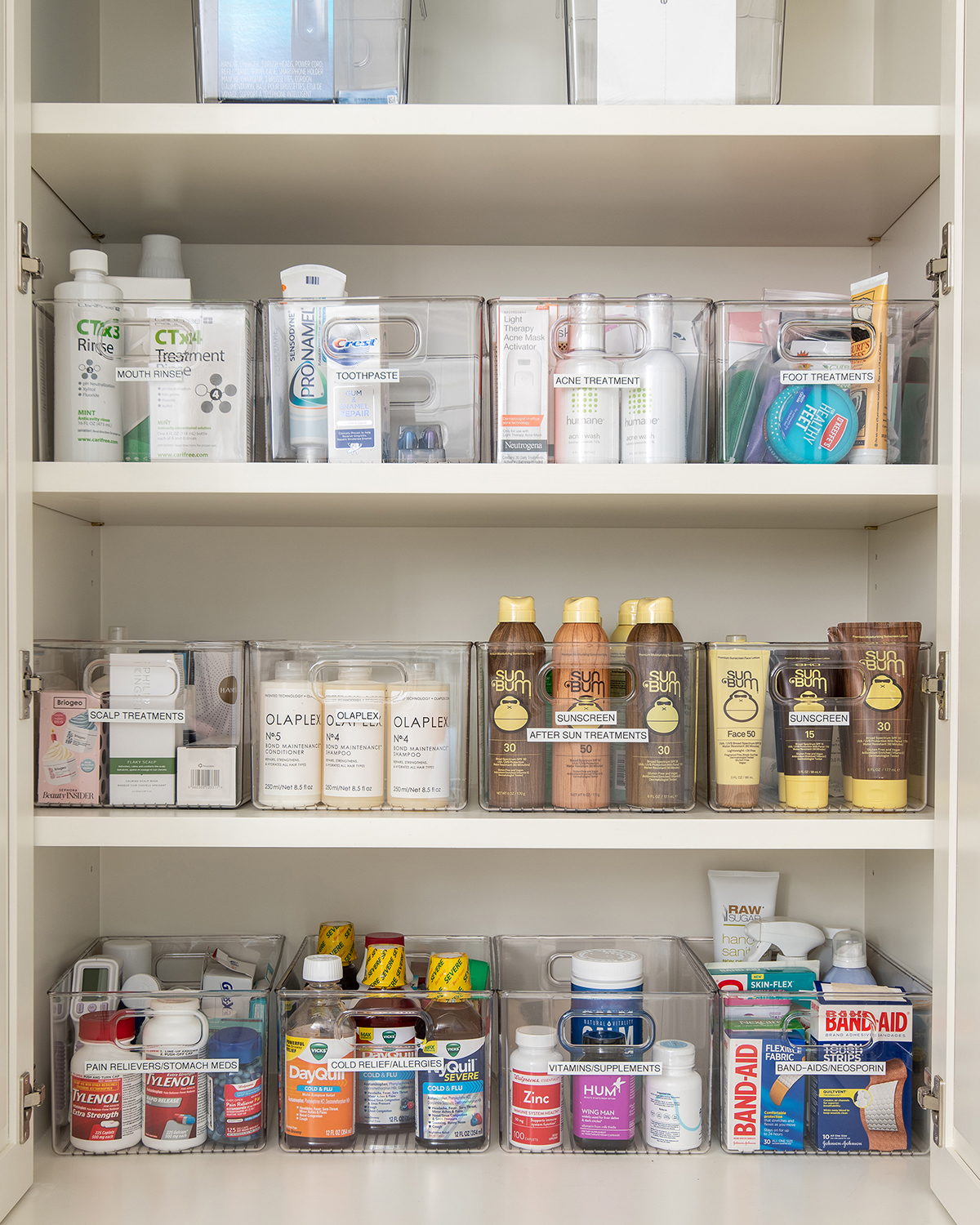Editor’s note: If you have any significant health problems it’s a good idea to speak with an herbalist about your specific conditions before consuming any herbal medicine routinely. This guide is a great place to start exploring natural remedies and supplements for menopause but should not be substituted for medical advice.
Menopause. The word brings up mixed emotions for most women. This pretty momentous transition from a whole life of hormones and periods to their midlife decline and dissipation doesn’t get the best rap. For some women, the transition (that often takes place over a number of years) is simply a minor discomfort here and there, while for others it can be pretty life-rocking and bring up some majorly unpleasant symptoms. Interestingly, some data shows that in the US compared to other countries, women have significantly more uncomfortable symptoms, which could be attributed to our unique American diet and exercise patterns. This difference suggests there may very well be some control over how each individual reacts to the big M.
How each individual woman chooses to navigate peri-menopause, menopause and post-menopause is a personal choice; much like how we all navigate using birth control and hormones (or not) according to what works best for our individual bodies.
However different we all are, there are certain remedies that have proven helpful to large groups of women over time. For many years hormone replacement therapy (HRT) and bio-identical hormones have received a lot of attention as a “cure-all” for menopause. These have proven an effective and positive choice for many people however, not everyone chooses to jump straight to hormone use, and increasingly some women are resistant to hormonal replacement therapy as they’ve had poor experiences with hormonal birth control in the past.
Using herbal medicine to support your body through this big transition is another beautiful and gentle option that’s absolutely worth trying first. In my practice of holistic and natural health, I tend to always recommend the most gentle and non-invasive options as a starting point. If they work, it can be truly magical and healing, and if they don’t, fear not, we have a lot of awesome science and western medicine available to us as well. Let’s take a look at this natural approach to menopause where we treat it as a normal and expected transition in the female life cycle, not an illness or disease process but a time in life where we can use our plant allies as support to move through gracefully.
To get our heads in a healthy place to discuss menopause as a normal transition, not an endpoint, I’d love to share a quote. This was pulled from my favorite book on herbalism, Botanical Medicine for Women’s Health by Aviva Romm:
“Rather than view menopause as the end of a woman’s life, it is important to remember that life expectancies in the developed countries around 80 years give women an estimated equal number of years in the menopausal chapter of their lives as in the 25-35 years of fertility they experience. This positive emphasis on a woman’s post-fertile years is celebrated by progressive women’s health advocates. Terms such as the perimenopausal decline, past the prime of life, crone, and post fertile do not address the new chapters of a woman’s life that began when her child conceiving capacities have altered… This implicit reference to women as child-bearers, mothers, and caretakers for upbringing focuses away from the other roles women dream of in their lives: purposes, spiritual journeys, and ambitions on non-reproductive levels that women also embody.” — Bhaswati Bhattacharya
Let’s get Technical: Define Menopause
The broader term menopause is generally used to refer to three distinct phases in a woman’s life. Peri-menopause, Menopause, and Post-menopause. Menopause as a word when broken down translates literally to a pause in menses or in other words, when our periods stop! According to the Mayo Clinic, the average age for menopause in the United States is 51 years, and most commonly menopause will occur for a woman between ages 40 and 58—a rather large range! Interestingly, looking at your mother’s journey with menopause can give you a rough sense of when you may make the transition, as it is likely genetic. That’s right, another great reason to call your mama.
Perimenopause: This period begins two to eight years prior to the cessation (or stopping) of menstruation (your period). At this time your cycles may become irregular or and heavier or lighter than what you’re used to. This is a result of natural and expected declining hormone levels as we age. Our fertility is in rapid decline at this time, although it is still possible— as we’re still cycling—to get pregnant! If you’re bent on no more babies, continue to use some form of contraception in this time of your life.
Menopause: The official marker of making it to menopause is when a woman has not had a period in 12 consecutive months. It’s important this cessation of menses is due to actual menopause, not pregnancy or other gynecological conditions like PCOS or even low thyroid levels. Once a woman has reached 12 consecutive months without a period, fertility and pregnancy are no longer possible.
Post-menopause: This phase simply denotes the complete transition of menopause and time thereafter. Estrogen levels are low and will stay low for the remainder of a woman’s life.

Common symptoms and herbs to counterbalance
Below, are commonly used herbal allies and plant medicine to treat many of the common complaints of the menopausal transition. This list has been compiled from a variety of herbalism resources that are well studied and trusted. Some of the dosages are variable and you may want to go up or down depending on what works for you. I recommend adding only one new herb or treatment at a time so you can gauge how it is helping you, or not! Each herb is linked to a product with the correct dosages as I recommend them.
Hot Flashes:
Black Cohosh: This herb is native to North America. It has long been used by the Native American community and is a favorite herbal remedy for women’s health. The name cohosh is from the Algonquian tribe, and means rough, referring to the feel of the rhizome.
- General Dose: 40-200mg / day (change dose as needed)
- 40 mg capsules
- 200 mg capsules
Sage: This low-growing shrubby plant is found growing in the United States and all over the world. it has been used for thousands of years for a plethora of reasons, but in regards to menopause, sage is thought to have estrogenic-like properties allowing them to bind to receptors in your brain, relieving night sweats, hot flashes, and vaginal dryness.
- General Dose: 1-4 grams, 3 times/day (each capsule linked is 1 gram)
- Here is a tea containing sage and a number of other beneficial herbs for hot flashes
Vaginal Dryness
Black Cohosh: In addition to hot flashes, black cohosh can also be used to relieve vaginal dryness. The same info as above applies but you can read more on its history at mountain rose herbs.
- General Dose: 40-200mg/day (change dose as needed)
- 40 mg capsules
- 200 mg capsules
Chaste Tree Berry a.k.a Vitex: Vitex is another long-standing, well-known herb that has been used for millennia as support for conditions specific to women. Its name Chaste tree comes from its once believed properties to suppress sexual desire in young women before they were married.
- General Dose: 40-1000 mg/day depending on needs, increase as needed
- Here is a nice in-between of 430 mg/capsule
Emollient Balms: Another option for vaginal dryness is to try an emollient balm to hydrate the vulva and vagina on an as-needed or daily basis. This is a gentle balm with calming herbal properties.
Sage: Same info as above applies. Not only can sage be helpful in relieving night sweats and hot flashes, but it can also help with vaginal dryness, too.
- General Dose: 1-4 grams, 3 times/day (each capsule linked is 1 gram)
- Here is a tea containing sage and a number of other beneficial herbs for hot flashes
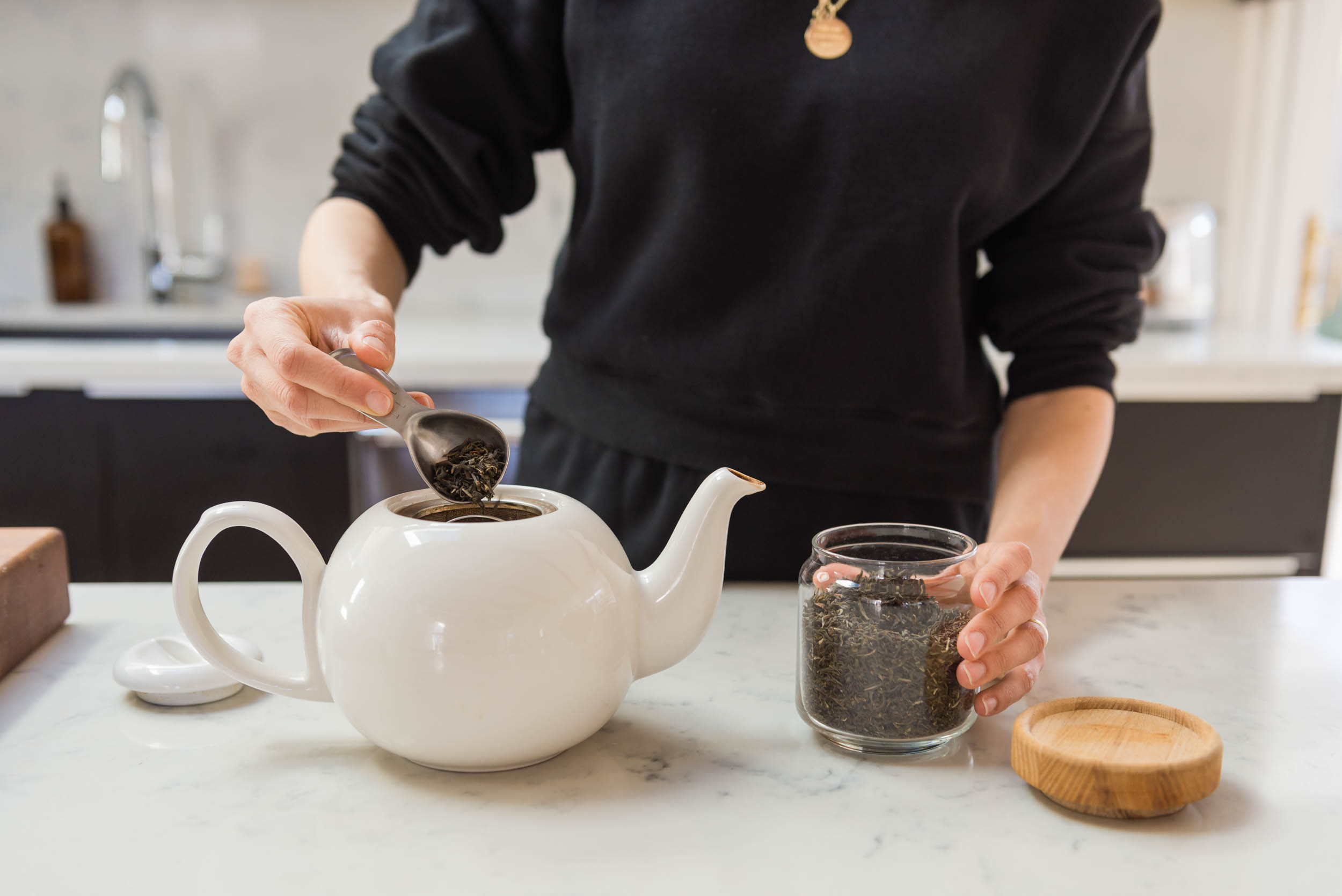
Insomnia
Valerian: A perennial flowering plant native to Europe and parts of Asia, its aromatic blooms are white or pink and smell sweet. The roots on the other hand are extremely pungent. Valerian is well known for its ability to calm, relax and help with stress.
- General Dose: 200 mg at bedtime
- Avoid this supplement in conjunction with any barbiturate, benzodiazepine, or other sedative drugs, it may increase the effects of sedatives.
Lemon Balm Tea: Lemon balm comes from the flowering plant Melissa officinalis. This aromatic plant is both citrus and herbal. It is well known for its calming properties and blends well with lavender, rose, and geranium.
- General Dose 1-3 cups / day
Lavender: This well-known relaxation herb has been proven to lower blood pressure, heart rate, and stress hormones when both ingested and diffused.
- Diffusing lavender essential oil at night, bedside, or applying 1 or 2 drops of lavender oil to your hands mixed with a carrier oil (olive, coconut, or jojoba oils are great options), and rubbing on your chest, neck, and behind your ears. Inhale deeply as you count sheep and drift off to sleep.
Kava Kava tea: This herb is native to the Pacific Islands, and its root is used traditionally as a ceremonial and social drink. It is known for its natural ability to relax and calm the person consuming. It can be consumed in tea, capsule, or tincture form.
- General Dose: 1 cup at night before bed.
Mood
Red clover: This mood booster is a common sight in your local park. The top of the plant, which is usually three, and if lucky, four leaves are used primarily. A part of the pea family, it has been used for mood since medieval times. It is a gentle addition to support your mood.
- General Dose: 40 mg / day
Ginseng: This plant has long been used in traditional Chinese medicine to promote energy, stamina as well as a healthy response to stress.
- General Dose: 100-300 mg daily
Ashwagandha: Part of the nightshade family, the ashwagandha plant is native to India. Ayurvedic medicine has used this adaptogenic herb for thousands of years. Ashwagandha root helps us cope with stress and supports overall cognitive health. It is thought to be grounding and nourishing.
- General Dose: 3-6 grams per day
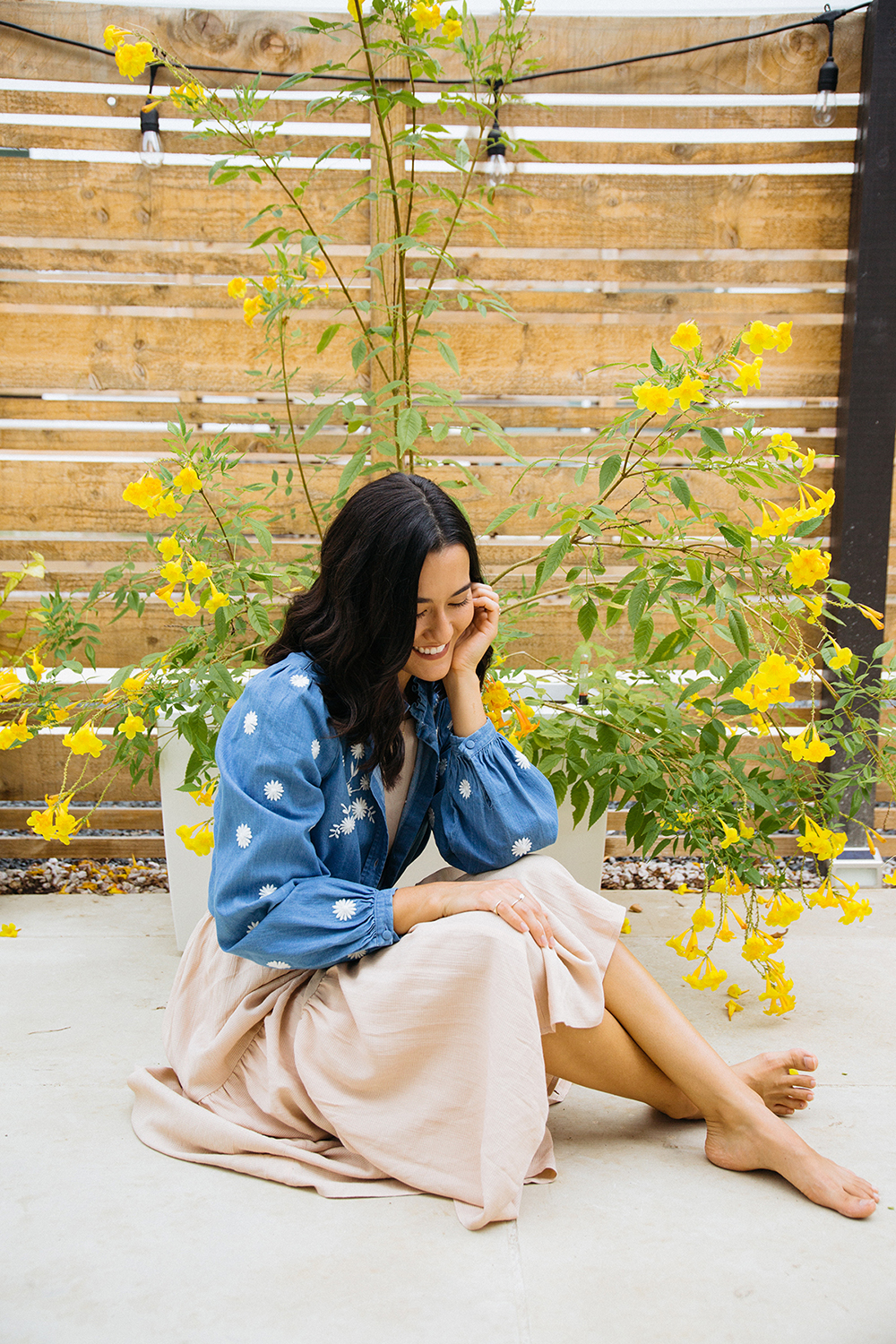
Memory
A diffusion of herbs that are stimulating to the brain is a good place to start. Aromatherapy including peppermint, rosemary, and orange are all stimulants and can help arouse the senses improving memory. There are so many beautiful diffusers for sale. This is my favorite one available online. My favorite site for essential oils is Mountain Rose Herbs, they are a go-to for quality controlled, local to the US, woman and herbalist-owned, clean herbs, oils, teas, and more! Check them out. Many of the herbs above that I recommended are their products.
A Place to Start Your Herbal Journey for Menopause
If you’re not sure where to start or think you may be just entering perimenopause and haven’t pinpointed any specific problems, this women’s balance blend by the company Gaia is a nice combination supplement. It’s formulated especially for menopause. Take a look at the ingredients, after reading this article and you can see it’s a nice blend of a few of the helpful herbs mentioned above, tailored to doses that are menopause specific.
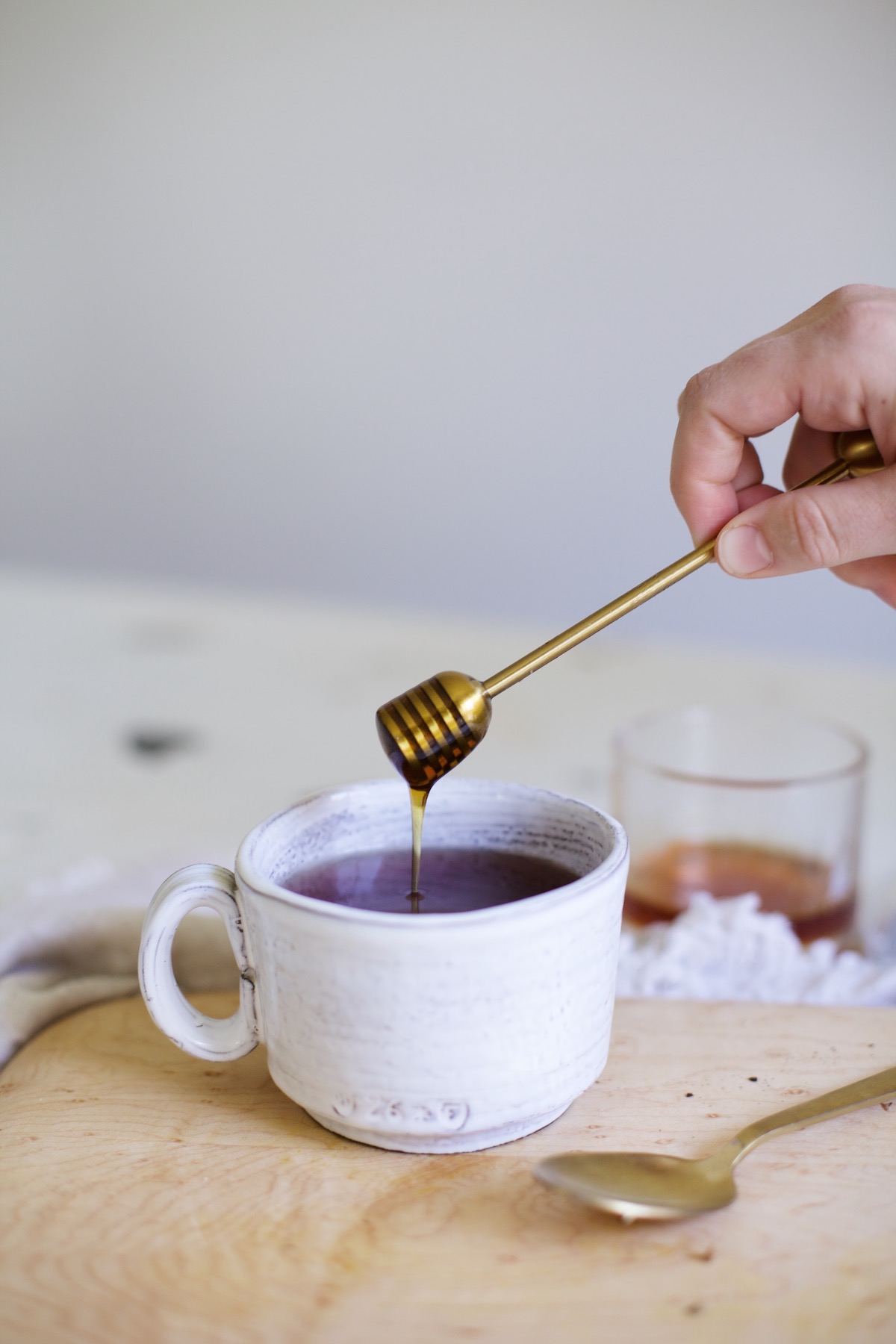
Lifestyle Modifications
- Exercise regularly
- Manage stress as much as possible, looking to breathwork, meditation, yoga is a good place to start there.
- Maintain a healthy weight. If your weight is above where you are comfortable or far outside your expected BMI, an appointment with your health care provider may be a good place to begin strategizing ways to bring it down.
Dietary Changes
To limit and check unpleasant menopause symptoms, consider reduction and mindful of consumption of:
- Alcohol
- Caffeine
- Limit high salt or high sugar foods
- Limit refined carbohydrate
- Be mindful of high intake of dairy and animal protein
Increase intake of:
- Fiber
- Fruits, vegetables
- Legumes and nuts
- Seeds and flax
- Fish
Best of luck on this journey my friends. I hope this guide gives you a place to begin exploring natural remedies for menopause as you see fit. This is a drop of water in the bucket of helpful herbal remedies and natural interventions you can take to help ease the transition. May your days be lovely and your hot flashes be few!
*all herbal histories obtained from Mountain Rose Herbs.
Loved this post? Pin this graphic to come back to it later.



